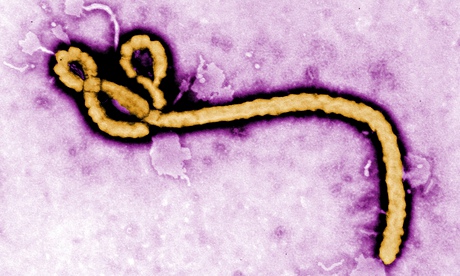
The World Health Organisation puts the number of people infected in the latest outbreak of the deadly Ebola virus, which has been sweeping through parts of western Africa since March, at 2,615, of whom 1,427 victims have died.
But public health officials have stressed there is little or no risk to the general public in the UK, even after the arrival in London this weekend of a British medic infected with the virus while treating patients in Sierra Leone.
That's because, although Ebola has a very high mortality rate and no treatment or vaccine has so far been licensed for it, the virus is actually much less contagious than many other more common diseases, and good infection-control practices should effectively stop its spread.
Ebola is certainly deadly. Many of those infected with it are likely to die; around 56% in the current outbreak, and 67% across all outbreaks since the disease's discovery in 1976. But unlike, say, measles, diphtheria or whooping cough, which are airborne and can be caught simply by breathing, Ebola is quite hard to contract; like HIV or hepatitis, it is transmitted through direct contact with the blood, secretions, organs or other bodily fluids of an infected person or animal, either through actual physical contact or via infected objects such as needles or clothing.
Strict medical infection control is, therefore, the best answer for preventing the disease's spread – and it is mainly the lack of such strict control in the countries most affected by the recent outbreak (Sierra Leone, Liberia, Guinea, Nigeria) that is responsible for its severity. In countries with high standards of public healthcare, the risk of transmission is generally considered minimal.
The medical director of the NHS could not have been much clearer this weekend following the arrival from Sierra Leone of a 29-year-old British healthcare worker, William Pooley, who tested positive for the Ebola virus last week and will now be treated in a special isolation unit at the Royal Free hospital in Hampstead, London.
"We have prepared rigorous plans for this type of situation," said Professor Sir Bruce Keogh. "This individual will pose no risk to the public, and only the tiniest risk to those who those who come into direct contact with him."
Professor Peter Piot, the Belgian scientist who helped discover the Ebola virus, has even said he "wouldn't be worried to sit next to someone with Ebola virus on the tube – as long as they don't vomit on you or something. This is an infection that requires very close contact."

